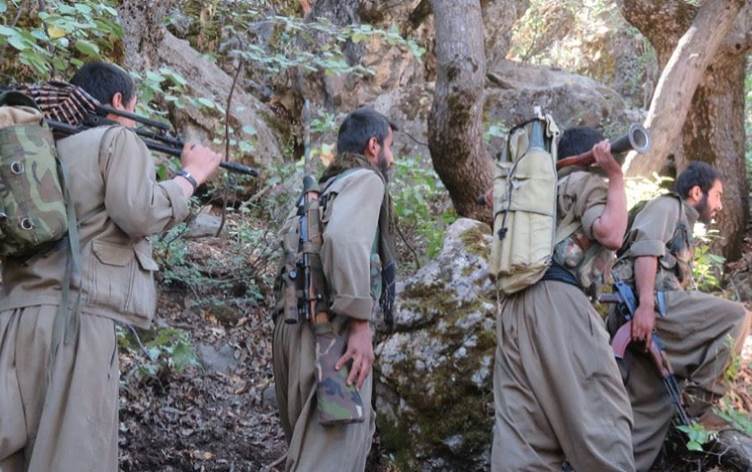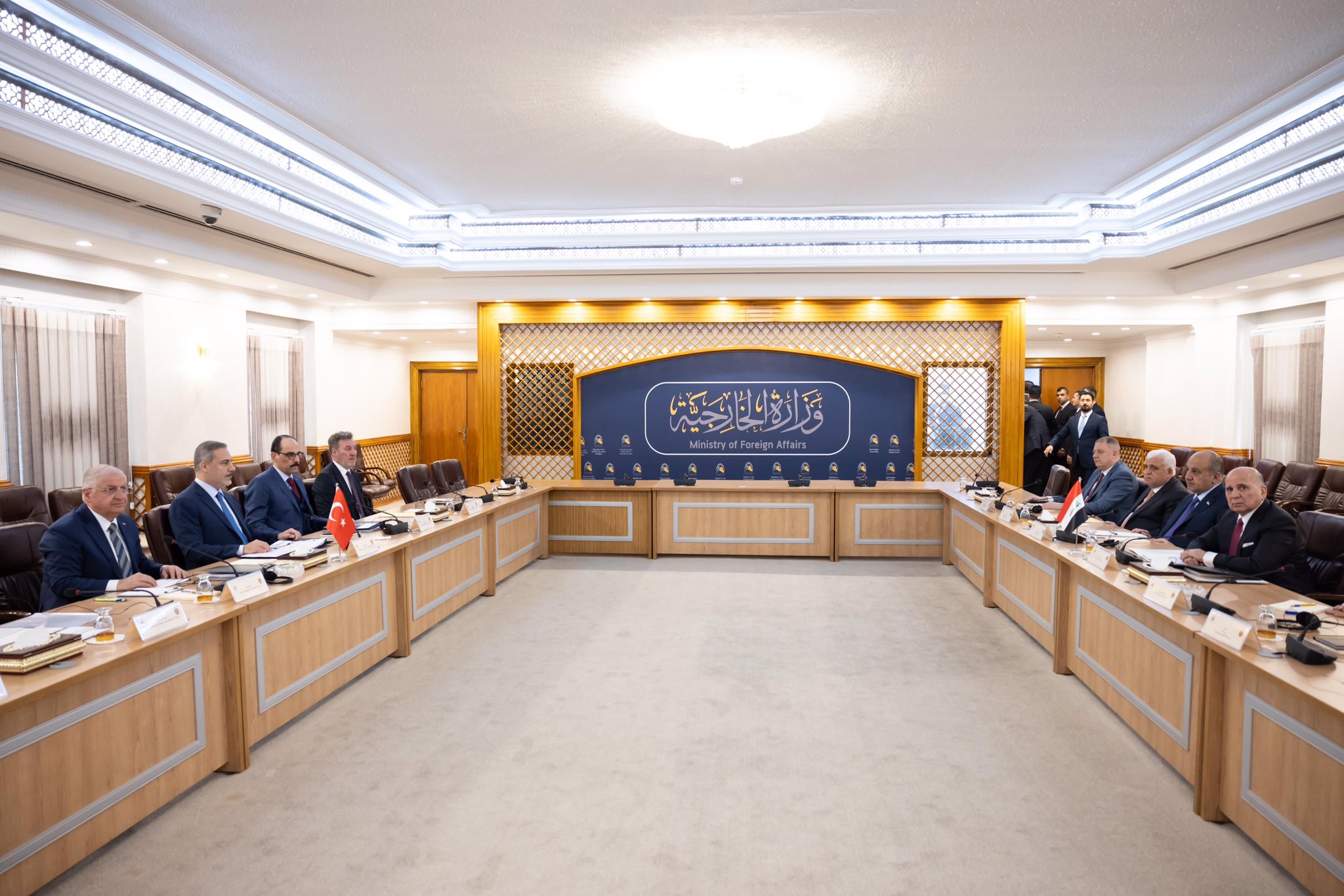ERBIL, Kurdistan Region - The Iraqi National Security Council on Thursday banned the Kurdistan Workers’ Party (PKK) from operating in the country, following a top security meeting with a Turkish delegation in Baghdad. Both sides discussed measures to be taken against the group which Baghdad claims poses a security threat to the country and neighboring Turkey.
A high-level Turkish delegation, which included Ankara’s Foreign minister Hakan Fidan, Defense Minister Yasar Guler and Ibrahim Kalin, the head of the intelligence agency (MIT), visited Baghdad on Thursday, holding the second round of a top security meeting with their Iraqi counterparts. The first round of the security talks was held in Ankara in December.
“Both sides stressed that the PKK organization represents a security threat to both Turkey and Iraq, and it is certain that the presence of the organization on Iraqi territory represents a violation of the Iraqi constitution,” read a joint statement from the foreign ministries of Ankara and Baghdad.
“Turkey welcomed the decision taken by the Iraqi National Security Council to list the PKK as a banned organization in Iraq. The two sides consulted on the measures that must be taken against the organization and its banned extensions [PKK’s alleged offshoots] that target Turkey from within Iraq’s territory,” it added without identifying the PKK’s “extensions.”
Turkey considers the Shingal Resistance Units (YBS), which controls parts of Shingal (Sinjar) and enjoys good ties with Iraqi security forces, a branch of the PKK. It is not clear if the all-Yazidi group will be targeted by Baghdad’s decision to ban the PKK.
Ankara has frequently targeted the YBS with drones, killing dozens of its members.
Iraq’s decision to ban the PKK comes ahead of Turkish President Recep Tayyip Erdogan’s expected visit to the country in April. The joint statement said that they are working on making the rare trip a “historic” and “successful” one, adding that they hoped there will be a “qualitative shift” in their bilateral ties.
Nuh Yilmaz, a senior advisor at the Turkish foreign ministry, said in a post on X early on Saturday that Baghdad’s agreement to join forces with Ankara against the PKK "for the first time," represents a "turning point," adding that "We will see the results gradually."
Rebar Ahmed, Kurdistan Regional Government’s interior minister, also attended Thursday’s security meeting.
It is not clear what role the Kurdistan Regional Government (KRG), which enjoys strong security, economic and political ties with Turkey, will play in the dramatic shift in Ankara-Baghdad ties.
The Turkish defense ministry on Tuesday published photos purportedly showing a top Turkish commander meeting with Kurdish and Iraqi military commanders in the Kurdistan Region.
“The operations we conduct in northern Iraq are carried out in close coordination with Iraqi security units,” the ministry said in a post on X, adding that they discussed Iraq-Turkey border security.
Iraqi border forces have increased their presence in areas in theKurdistan Region known for PKK-Ankara clashes, especially in Duhok province.
Turkey has recently upped its attacks against the PKK in the Kurdistan Region. It has also intensified its targeting of Kurdish fighters in northern Syria due to their alleged ties with the PKK.
The PKK has killed dozens of Turkish soldiers throughout the course of the winter, exploiting harsh weather conditions which disturb Ankara’s aerial operations, especially its effective use of drones.
Turkey has carried out retaliatory strikes against the Kurdish administration in northeast Syria (Rojava), targeting the civilian infrastructure of the region, especially oil refineries as well as electricity and water stations. Washington, Syrian Kurds’ main ally, told Rudaw in December that it was “dismayed” by the airstrikes which resulted in civilian deaths.
Erdogan said earlier this month that Ankara is close to completing a zone that will “permanently resolve” the security issues along their border with the Kurdistan Region and Iraq by the summer.
He also called on everyone in the region to respect Ankara’s security strategy, “Otherwise, they will be the cause of the tensions that will arise,” he said.
"During the summer months, we will have largely completed our fortifications in the Operation Claw region, allowing us to take far more effective measures," Erdogan said in February.
Operations Claw are a series of military operations by the Turkish army in the mountainous areas of the Kurdistan Region targeting the alleged positions of PKK, aiming to eradicate the group. The first iteration of Operation Claw was launched in May 2019 and was then followed by Operation Claw-Tiger in 2020. The third iteration of the offensive, launched in April 2021, consisted of two simultaneous cross-border campaigns, a ground campaign, and an air campaign, dubbed Operation Claw-Lightning and Operation Claw-Thunderbolt. A year later, Turkey launched Operation Claw-Lock.
In late February, the Christian Peacemaker Teams (CPT), a human rights organization that monitors Turkey’s operation in the Kurdistan Region, told Rudaw that Ankara has conducted 1548 attacks in the Region in 2023.
A suspected Turkish airstrike last week killed two civilians and wounded another in Duhok province.










Comments
Rudaw moderates all comments submitted on our website. We welcome comments which are relevant to the article and encourage further discussion about the issues that matter to you. We also welcome constructive criticism about Rudaw.
To be approved for publication, however, your comments must meet our community guidelines.
We will not tolerate the following: profanity, threats, personal attacks, vulgarity, abuse (such as sexism, racism, homophobia or xenophobia), or commercial or personal promotion.
Comments that do not meet our guidelines will be rejected. Comments are not edited – they are either approved or rejected.
Post a comment